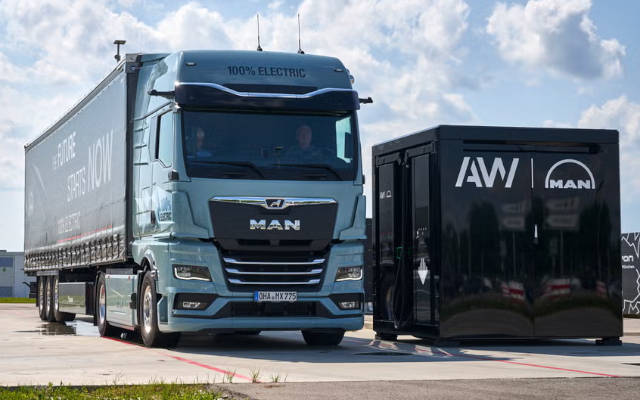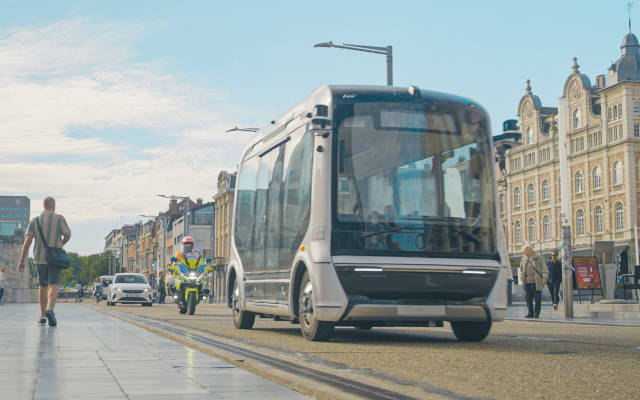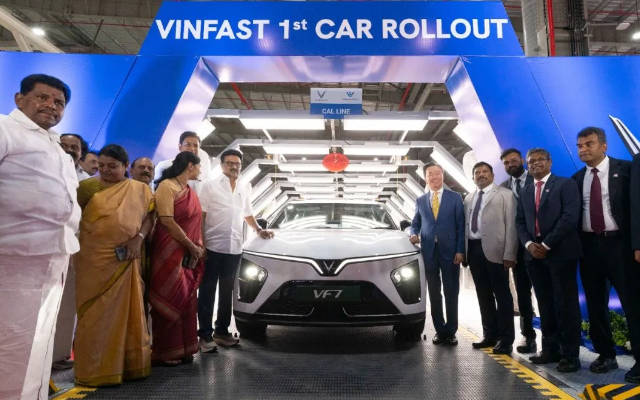 EDITOR'S PICK
EDITOR'S PICK
The Illusion of Clean: How Big Oil Perfected the Art of Greenwashing
13 Sep 2025 | Synopsis
 Big Oil's decades-long greenwashing campaign used PR to mask environmental harm. Chevron's "People Do" ads, Exxon's climate denial lobbying, and BP's carbon footprint push shifted blame to consumers. Investors like BlackRock and execs like Rex Tillerson profited, while conservative politicians traded support for donations. Lawsuits from cities and youth groups now challenge fossil fuel deception, aiming to hold companies accountable in court.
Big Oil's decades-long greenwashing campaign used PR to mask environmental harm. Chevron's "People Do" ads, Exxon's climate denial lobbying, and BP's carbon footprint push shifted blame to consumers. Investors like BlackRock and execs like Rex Tillerson profited, while conservative politicians traded support for donations. Lawsuits from cities and youth groups now challenge fossil fuel deception, aiming to hold companies accountable in court.This Giant Black Box is the EV Charger of the Future
13 Sep 2025 | Synopsis
 A massive black box spotted in California is the Smart Charging Cube, a mobile EV fast charger built by AW Automotive and MAN Truck & Bus. Designed for electric big rigs, it delivers up to 400 kW from its onboard battery and up to 1,000 kW when connected to a Megawatt Charging System. It’s built for job sites and fleet use, offering high-speed charging without permanent grid infrastructure.
A massive black box spotted in California is the Smart Charging Cube, a mobile EV fast charger built by AW Automotive and MAN Truck & Bus. Designed for electric big rigs, it delivers up to 400 kW from its onboard battery and up to 1,000 kW when connected to a Megawatt Charging System. It’s built for job sites and fleet use, offering high-speed charging without permanent grid infrastructure.WeRide Enters Belgium as Autonomous Robobus Rolls Into Leuven
11 Sep 2025 | Synopsis
 WeRide launched its autonomous Robobus in Leuven, Belgium, marking its 11th global market. In partnership with De Lijn and Espaces-Mobilités, the pilot will run through January 2026, aiming to improve first- and last-mile transit. Mapping begins now, with public testing mid-September. The project reflects Belgium’s push for smart mobility and AV integration.
WeRide launched its autonomous Robobus in Leuven, Belgium, marking its 11th global market. In partnership with De Lijn and Espaces-Mobilités, the pilot will run through January 2026, aiming to improve first- and last-mile transit. Mapping begins now, with public testing mid-September. The project reflects Belgium’s push for smart mobility and AV integration.What's Keeping The Indian Middle Class From Driving An Electric Car?
11 Sep 2025 | Synopsis
 India’s middle class is hesitant to adopt EVs due to high import prices, limited public charging, and range anxiety. Tesla’s Model Y costs ₹6M ($68K), far above mainstream affordability. Local production is key—Vietnam’s VinFast and India’s Tata Motors offer EVs closer to ₹1–2.3M. With EVs at just 5.3% market share, scaling infrastructure and lowering costs are critical for broader adoption.
India’s middle class is hesitant to adopt EVs due to high import prices, limited public charging, and range anxiety. Tesla’s Model Y costs ₹6M ($68K), far above mainstream affordability. Local production is key—Vietnam’s VinFast and India’s Tata Motors offer EVs closer to ₹1–2.3M. With EVs at just 5.3% market share, scaling infrastructure and lowering costs are critical for broader adoption.Small Modular Reactors and the Big Questions of Cost & Waste
11 Sep 2025 | Synopsis
 A new study by Kim and Macfarlane finds small modular reactors (SMRs) face steep cost overruns and complex waste challenges. Promised savings rely on mass production that hasn't materialized, while some SMR designs may generate 2–30× more waste per unit of energy. With few commercial deployments and high uncertainty, SMRs remain a high-risk option compared to proven clean technologies.
A new study by Kim and Macfarlane finds small modular reactors (SMRs) face steep cost overruns and complex waste challenges. Promised savings rely on mass production that hasn't materialized, while some SMR designs may generate 2–30× more waste per unit of energy. With few commercial deployments and high uncertainty, SMRs remain a high-risk option compared to proven clean technologies.
 EVWorld Exclusive
EVWorld Exclusive
Sun vs. Sagebrush: Nevada's Solar Boom Meets Its Wild Heart
12 Oct 2025 |  Nevada's Esmeralda 7 solar project was canceled amid ecological concerns and political pushback. Conservationists opposed its scale and impact on desert wildlife and cultural sites. The Trump administration halted its review, citing regulatory burdens. Though 12 million acres are solar-designated, only 20,000 are developed. Advocates urge smarter siting, wildlife corridors, and use of degraded lands to balance clean energy goals with wilderness protection.
Nevada's Esmeralda 7 solar project was canceled amid ecological concerns and political pushback. Conservationists opposed its scale and impact on desert wildlife and cultural sites. The Trump administration halted its review, citing regulatory burdens. Though 12 million acres are solar-designated, only 20,000 are developed. Advocates urge smarter siting, wildlife corridors, and use of degraded lands to balance clean energy goals with wilderness protection.
EV Alarmism: Common EV Issues Article Analysis
12 Oct 2025 |  The GoBankingRates article highlights real EV concerns - battery costs, charging issues, part shortages, and recalls - but overstates their frequency and impact. Most problems are rare, covered under warranty, or brand-specific. Charging and battery failures are uncommon, and recalls affect gas cars too. The article lacks comparative data and context, making its claims seem more alarming than typical EV ownership realities.
The GoBankingRates article highlights real EV concerns - battery costs, charging issues, part shortages, and recalls - but overstates their frequency and impact. Most problems are rare, covered under warranty, or brand-specific. Charging and battery failures are uncommon, and recalls affect gas cars too. The article lacks comparative data and context, making its claims seem more alarming than typical EV ownership realities.
Rivian's Infotainment Revolution: AI at the Wheel, No Smartphone Required
11 Oct 2025 |  Rivian's infotainment system replaces CarPlay with a native AI-powered interface backed by Amazon and Volkswagen. It offers smart navigation, voice control, music/video streaming, and cloud-based personalization. AM radio is excluded, prompting bipartisan legislation to mandate its return. Autonomous driving integration is planned, with updates rolling out in 2025 and full features expected in the R2 by 2026.
Rivian's infotainment system replaces CarPlay with a native AI-powered interface backed by Amazon and Volkswagen. It offers smart navigation, voice control, music/video streaming, and cloud-based personalization. AM radio is excluded, prompting bipartisan legislation to mandate its return. Autonomous driving integration is planned, with updates rolling out in 2025 and full features expected in the R2 by 2026.
Hydrogen's Flight Path: Fuel Cells, Turbines, and the Economics of Clean Aviation
10 Oct 2025 |  Aviation is shifting from Jet A to four fuel systems: electricity, hydrogen (fuel cell and combustion), SAF, and petroleum. Fuel cells suit short-haul aircraft; hydrogen combustion may power long-range jets. SAF bridges legacy fleets. Hydrogen costs - $5-$7/kg today, possibly $2/kg by 2040 - impact ticket prices and infrastructure decisions. Airport authorities, airlines, and governments will share deployment costs. Each fuel has distinct environmental pros and cons shaping aviation's net-zero future.
Aviation is shifting from Jet A to four fuel systems: electricity, hydrogen (fuel cell and combustion), SAF, and petroleum. Fuel cells suit short-haul aircraft; hydrogen combustion may power long-range jets. SAF bridges legacy fleets. Hydrogen costs - $5-$7/kg today, possibly $2/kg by 2040 - impact ticket prices and infrastructure decisions. Airport authorities, airlines, and governments will share deployment costs. Each fuel has distinct environmental pros and cons shaping aviation's net-zero future.
 12 Oct 2025 16:07:53 UTC |
RECENT PODCASTS
EV and AI Stock Reviews TSLA RIVN LCID AI NVDA SMCI GTEC ISRG GOEV
SEARCH RSSTREAM
 52 New Postings In Past 24 Hours
52 New Postings In Past 24 Hours
Category:review
Region:NoAmerica
Date:12 Oct 2025
Category:energy
Region:AsiaPacific
Date:12 Oct 2025
Category:review
Region:NoAmerica
Date:12 Oct 2025
Category:energy
Region:NoAmerica
Date:12 Oct 2025
Category:energy
Region:NoAmerica
Date:12 Oct 2025
Category:mobility
Region:Europe
Date:12 Oct 2025
Category:mobility
Region:NoAmerica
Date:12 Oct 2025
Category:mobility
Region:NoAmerica
Date:12 Oct 2025
Category:mobility
Region:NoAmerica
Date:12 Oct 2025
Category:mobility
Region:Global
Date:12 Oct 2025
Category:autonomy
Region:NoAmerica
Date:12 Oct 2025
Category:finance
Region:NoAmerica
Date:12 Oct 2025
Category:autonomy
Region:Europe
Date:12 Oct 2025
Category:mobility
Region:NoAmerica
Date:12 Oct 2025
Category:finance
Region:NoAmerica
Date:12 Oct 2025
Category:autonomy
Region:NoAmerica
Date:12 Oct 2025
Category:policy
Region:NoAmerica
Date:12 Oct 2025
Category:finance
Region:NoAmerica
Date:12 Oct 2025
Category:policy
Region:NoAmerica
Date:12 Oct 2025
Category:finance
Region:NoAmerica
Date:12 Oct 2025